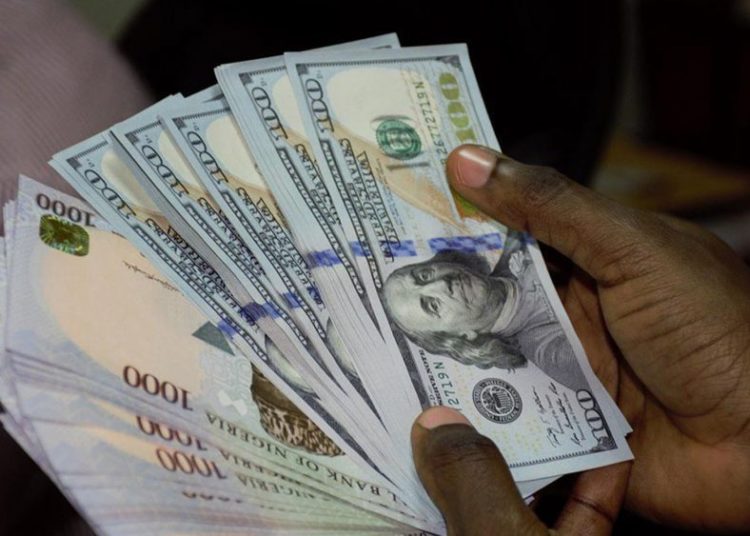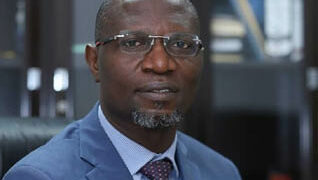In line with the statement by the President Bola Tinubu in his inaugural speech on the harmonisation of the exchange rate, the Central Bank of Nigeria (CBN) last week made critical changes to the exchange rate regime of the country.
The apex bank, Wednesday last week, lifted restrictions at the official window, to allow banks trade freely as it collapsed all segments of the foreign exchange market into the Investors’ and Exporters’ window.
This means that all eligible foreign exchange transactions in the market would only be done via the I&E window, as all other windows ceased to exist. At the I&E window trades are executed between a willing buyer, willing seller system at an agreed price through an authorised dealer.
Consequently, the value of the naira depreciated at the official window from N474 to the dollar which it traded against the dollar before the announcement to N664.04 at the Investors’ and Exporters’ window while it gained N5 at the parallel market to close at N755 from N760. Last week Friday, the naira closed at N663 to the dollar at the official window.
Although it maintained that the 41 Items that had been excluded from the official market remain excluded, the CBN, in the new foreign exchange regime, said personal and business travel (PTA/BTA), and other invisible transactions will continue to be accessed through the banks at the prevailing market rate.
It also lifted restrictions on domiciliary accounts saying cash deposits into domiciliary accounts will not be restricted, and customers “shall have unfettered and unrestricted access to funds in their accounts.”
Whilst this is in line with the policy directive of the new government, there has been applause as well as skepticism by analysts and industry watchers.
Resident representative for Nigeria of the International Monetary Fund (IMF), Ari Aisen, said it would continue to support the federal government with recommendations to mitigate the economic effects of forex reforms implementation.
“The Fund greatly welcomes the authorities’ decision to introduce a unified market-reflective exchange rate regime in line with our long-standing recommendations. We stand ready to support the new administration in implementing FX reforms, Aisen said.
On his part, the head, Financial Institutions Ratings at Agusto & Co, Ayokunle Olubunmi, noted that, “If it is implemented as stated, there will be some volatility in the near term, but the forex windows will converge at a rate lower than the prevailing parallel market rate. It is a good policy. The main challenge we have in the forex market is illiquidity or inadequate supply and the reason is that the price does not reflect the fundamental price of naira.
“It is good that they did not peg it but floated it. If it is implemented as planned. Recall that in 2016 there was a forex policy that was designed but wasn’t implemented. But if this is implemented as planned you would see a lot of forex that was outside the market come back inside. Also, those that were hoarding dollars would drop.
“Firstly, you would see that demand would drop but also those that want to legitimately buy would have access to it” he said adding that a lot of exporters who have their monies outside the country would be encouraged to bring back their funds. “It might take some time for the market to stabilise but it is a good policy. The official rate would go up but the parallel rate would also drop.”
Similarly, chief executive of Centre for the Promotion of Private Enterprise (CPPE), Dr Muda Yusuf, welcomed the bold step taken by the Tinubu administration towards the unification of the naira exchange rate.
According to him, “the liberalisation of the foreign exchange market would unlock the huge potential for investment, jobs and capital flows. Investor confidence would be positively impacted.
The policy regime, he stressed, would reduce uncertainty and inspire the confidence of investors; as well as minimise discretion and arbitrage in the foreign exchange allocation mechanism.
“Rate unification does not imply that rates will be exactly the same in all segments of the market. The objective is to ensure that the differentials are very minimal, possibly between 5-10 per cent,” he stated.
However, Global investment and financial institution, Goldman Sachs Group said, the devaluation of the naira by the CBN, though necessary, was not a sufficient condition for unifying the official and parallel market exchange rates.
Goldman Sachs noted that the apex bank had failed to “provide any clarity on current/capital account FX restrictions that result in a parallel market exchange rate that is weaker than that offered at the official window(s).”
Goldman Sachs also stated that, easing forex restrictions and clearing the forex backlog which it estimated at $12 billion, would be required to achieve a unified naira exchange rate. It interpreted the recent policy announcements by the CBN as, “significant positive surprises to our and market expectations and as being supportive of a constructive view on sovereign credit”.
However, the institution noted that, in the broader forex policy set-up, the CBN failed to “provide any guidance on whether the (historically heavily managed) currency regime would be maintained or if there might be any transition toward a more flexible exchange rate.
“In our view, any forex liberalisation or easing of forex restrictions would entail the need for higher local interest rates to lean against currency depreciation pressure.”
Goldman Sachs also pointed out that it recently examined Nigeria’s external balances, and, “our analysis suggested that at current oil prices, the naira adjustment needed to rebalance the current account into a sustainable surplus would entail a devaluation to around N750 vs. the dollar.
“Beyond official exchange rate windows and current/capital account restrictions, market participants are focused on whether the CBN might introduce changes to the forex policy regime (historically heavily managed).
“We have no guidance from the authorities on their policy preferences with respect to the forex regime. Additionally, following the suspension of former CBN Governor Emefiele, the new administration has not yet made an appointment for a new governor. Thus, it remains uncertain whether the CBN will re-peg the currency at a new (weaker) level or might move in the direction of introducing some currency flexibility (in an extreme, a free-float).”





